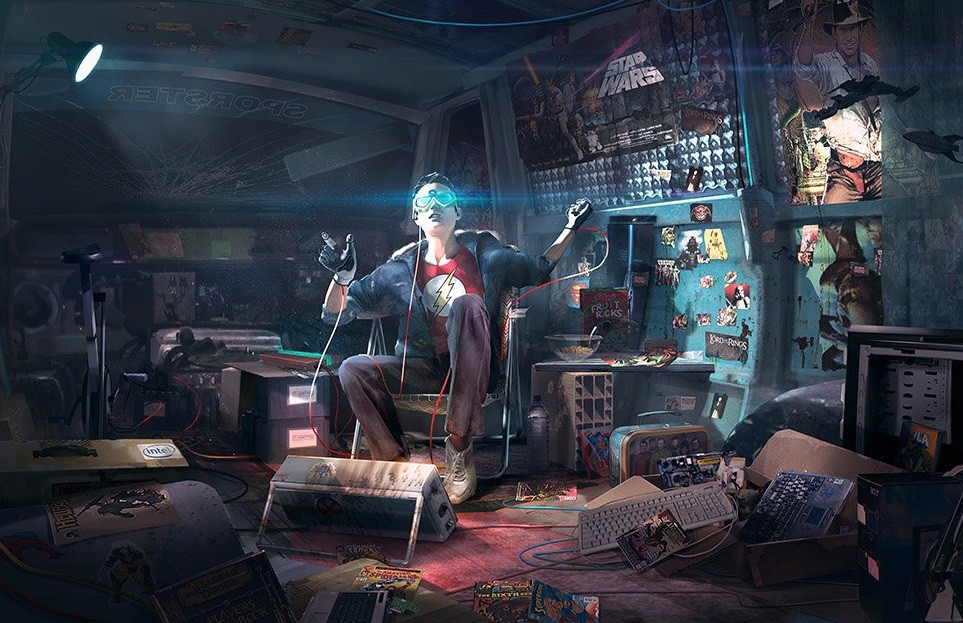Popular Reads
Top Results
Can't find what you're looking for?
View all search resultsPopular Reads
Top Results
Can't find what you're looking for?
View all search resultsUnderstanding the future through cinema
Cinema invades the mind of its audience, providing a visual illustration of what the future will look like, leaving little to the imagination.
Change text size
Gift Premium Articles
to Anyone
T
he recently released movie Ready Player One has been selling out theaters all over the world. The movie predicts a near future in which everyone has left reality and escaped into a world of virtual reality. Much of the film’s popularity can be credited to the long history of humans trying to predict the future.
The more creative individuals of our society have historically led the way in making these predictions. On a narrow scope, writers and painters have created their own worlds, building a reality that may or may not have any tethers to our own. This is where the likes of Star Wars, Star Trek, Lord of The Rings and Dune come in. Other artists have attempted to tackle the problem on a much wider and more realistic scope, pondering what the human species might look like 10 or 20 years into the future.
Many media platforms have been used to imagine what the future could look like. A Fast Company article from 2012 highlighted how French postcards from 1910 accurately predicted the technology found in 2000. George Orwell's classic novel 1984 inspired millions to be more wary of Big Brother. The TV series The Simpsons has long made satirical predictions that have bizarrely come true. But of all the media platforms used to predict the future, none have been so popular nor widely used as cinema.
Read also: Our mindless future
Paintings and books that predict the future leave much to the imagination. Books provide a literary explanation of events, but no images to visually back them up. Paintings provide a visual account of events, but leave many questioning "what happens after?".
Cinema invades the mind of its audience, providing a visual illustration of what the future might look like, leaving little to the imagination. Stories are rarely those of a single individual, but rather stories of a society and the world they currently live in. These provide a perspective not only into the lives of the heroes, but also about the people surrounding them.
So how exactly do movies "predict" the future? There have been many narratives circling in pop culture, ranging from technological utopias, barren wastelands, to futures not much different from our present.
Animated movies are usually the main drivers behind the predictions of a positive future. Meet the Robinsons, Big Hero 6 and Astro Boy provide visions of a future that is a mix of technological utopia and colorful megacities. Time machines, tubular transportation and huge squishy walking hospitals are no doubt technological advancements that everyone wants, a result of an admittedly optimistic view of the future.
On the other side of the spectrum, we have movies that project a grittier picture of the future. These movies usually revolve around the rise of sentient technology, starvation, or the demise of the human species. Some notable members of this group are Blade Runner, the Mad Max franchise, 2001: A Space Odyssey and Interstellar. The worlds these movies build are often filled to the brim with crime and poverty. Interstellar and Mad Max base their stories on food scarcity, while Blade Runner and 2001: A Space Odyssey focus on the rise of artificial intelligence. It’s also interesting to note we have the outliers like Wall-E, which predicts the demise of the human race and the dominance of sentient robots, yet packages it in a kid-friendly manner.
Nearing the middle of the spectrum, we have the realistic predictions. These are the movies that are neither extremely optimistic nor pessimistic, focusing more on how far our society has progressed and what lies one or two steps ahead.
But this last group is probably the most interesting group of films among the others. These movies cause the most fear and hope, due to their premises being mostly based on reality and pre-existing technology. Look no further than Spike Jonze's Her for an example. Her chronicles a love story between a lonely man and his virtual assistant. At the time, Siri had only been out for three years, while Alexa and Google Assistant weren't even in existence yet. Ar the time, Her seemed to be a bit unimaginable. But now? The trio of smart assistants have taken the world by storm, and we rely on them for more day-to-day tasks. We have come closer and closer to the reality of Her.
So what should we do with these predictions? Well, we can take most of them with a grain of salt. There are tons of 'predictions' made by popular films that ultimately end up as nothing more than predictions. Star Trek and Star Wars have existed since the 1970's, yet we are not any closer to hyperspeed space travel (though Elon Musk certainly is trying hard).
These movies can also serve as a reminder and an illustration of what the future will look like if we're not careful. The choices we make as a society will determine whether we'll start living with our own Baymax, or whether we end up living through an episode of the Black Mirror series. (wng)
***
An avid film watcher, Haikal aspires to one day sit in a director’s chair. He reviews movies on his Instagram account (@haikalstr) for fun.
---------------
Interested in writing for thejakartapost.com? We are looking for information and opinions from experts in a variety of fields or others with appropriate writing skills. The content must be original on the following topics: lifestyle (beauty, fashion, food), entertainment, science & technology, health, parenting, social media, travel, and sports. Send your piece to community@jakpost.com. For more information click here.











